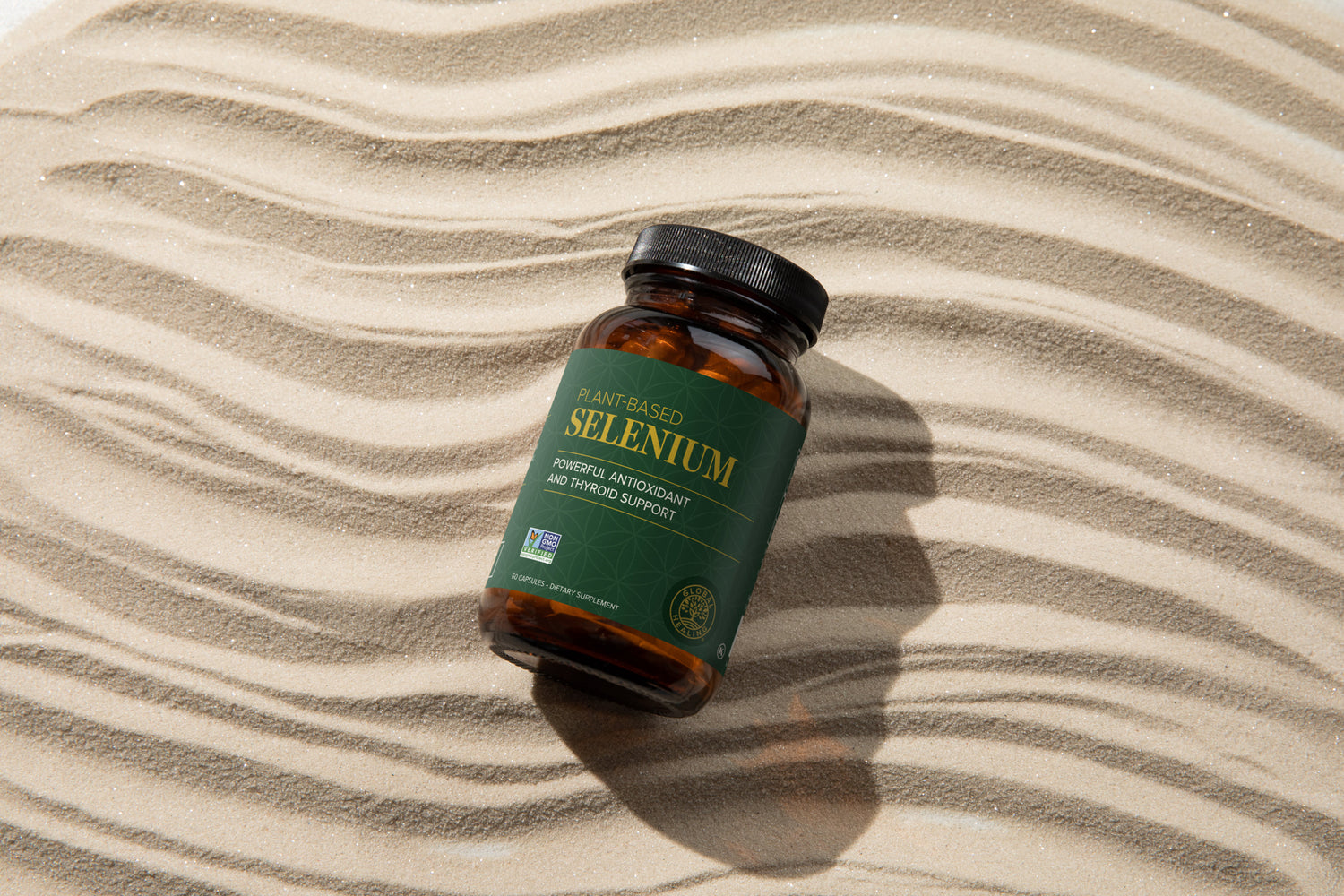Selenium is a crucial mineral that our bodies require to function properly. Despite its importance, selenium often doesn't get the attention it deserves. This article will shed light on the health benefits of selenium, supported by scientific research.
Understanding Selenium: An Essential Mineral
Selenium is classified as an essential mineral, meaning it must be obtained through your diet. It is needed in small amounts but plays a significant role in your body's vital processes, including metabolism and thyroid function.
This trace mineral is present naturally in many foods, fortified in others, and also available as a dietary supplement. It is a constituent of more than two dozen selenoproteins that have critical functions in the body, such as reproduction, thyroid hormone metabolism, DNA synthesis, and protection from oxidative damage and infection.
The Antioxidant Power of Selenium
One of the most recognized health benefits of selenium is its potent antioxidant properties. Antioxidants are compounds in foods that prevent cell damage caused by free radicals.
Free radicals are naturally occurring byproducts of processes like metabolism. They play a vital role in protecting your body from disease. However, factors like smoking, alcohol use, and stress can lead to an excess of free radicals, causing oxidative stress, which damages healthy cells.
Oxidative stress has been linked to chronic conditions like heart disease, Alzheimer’s, and cancer, as well as premature aging and the risk of stroke. Antioxidants like selenium help reduce oxidative stress by keeping free radical numbers in check.
Selenium and Cancer Prevention
In addition to decreasing oxidative stress, selenium may help lower the risk of certain cancers. This benefit is attributed to selenium's ability to reduce DNA damage and oxidative stress, boost your immune system, and destroy cancer cells.
A review of multiple studies found that having a high blood level of selenium was associated with a lower risk of certain types of cancer, including breast, lung, colon, and prostate cancers. It's important to note that this effect was only associated with selenium obtained through foods, not supplements.
Selenium and Heart Health
A diet rich in selenium may help keep your heart healthy. Low selenium levels have been linked to an increased risk of heart disease. Selenium may also lower markers of inflammation in your body—one of the main risk factors for heart disease.
By reducing inflammation and oxidative stress in your body, selenium may help lower heart disease risk.
Selenium and Mental Health
Alzheimer’s disease is a devastating condition that causes memory loss and negatively affects thinking and behavior. Oxidative stress is believed to be involved in both the onset and progression of neurological diseases like Parkinson’s, multiple sclerosis, and Alzheimer’s.
Several studies have shown that patients with Alzheimer’s disease have lower blood levels of selenium. Moreover, some studies have found that antioxidants in both foods and supplements may improve memory in patients with Alzheimer’s.
Selenium and Thyroid Function
Selenium is crucial for the proper functioning of your thyroid gland. Thyroid tissue contains a higher amount of selenium than any other organ in the human body. This powerful mineral helps protect the thyroid against oxidative damage and plays an essential role in the production of thyroid hormones.
Selenium and Immune System
Your immune system keeps your body healthy by identifying and fighting off potential threats, including bacteria, viruses, and parasites. Selenium plays an important role in the health of your immune system. This antioxidant helps lower oxidative stress in your body, reducing inflammation and enhancing immunity.
Selenium and Asthma
Asthma is a chronic disease that affects the airways that carry air in and out of the lungs. These airways become inflamed and begin to narrow, causing symptoms like wheezing, shortness of breath, chest tightness, and coughing. Due to selenium’s ability to reduce inflammation, some studies suggest that this mineral may help reduce asthma-related symptoms.
Dietary Sources of Selenium: Where Can You Get It?
Many healthy foods are high in selenium. Some of the best sources include seafood, nuts, and mushrooms. However, the amount of selenium in plant-based foods varies depending on the selenium content of the soil in which they were grown. Therefore, it’s important to consume a varied diet that includes more than one good source of this important mineral.
Understanding Selenium Toxicity: Can You Have Too Much?
While selenium is necessary for good health, getting too much can be dangerous. In fact, consuming high doses of selenium can be toxic and even fatal. Selenium toxicity is rare, but it’s important to stay close to the recommended amount of 55 mcg per day and never exceed the tolerable upper limit of 400 mcg per day.
Selenium and Medication Interactions
Selenium can interact with certain medications, and some medications can have an adverse effect on selenium levels. Therefore, it's crucial to discuss your selenium status with your healthcare provider if you're taking medication regularly.
In conclusion, selenium is a powerful mineral that is essential for the proper functioning of your body. It plays a critical role in metabolism and thyroid function and helps protect your body from damage caused by oxidative stress. Adding more selenium-rich foods to your diet is an excellent way to maintain good health.


